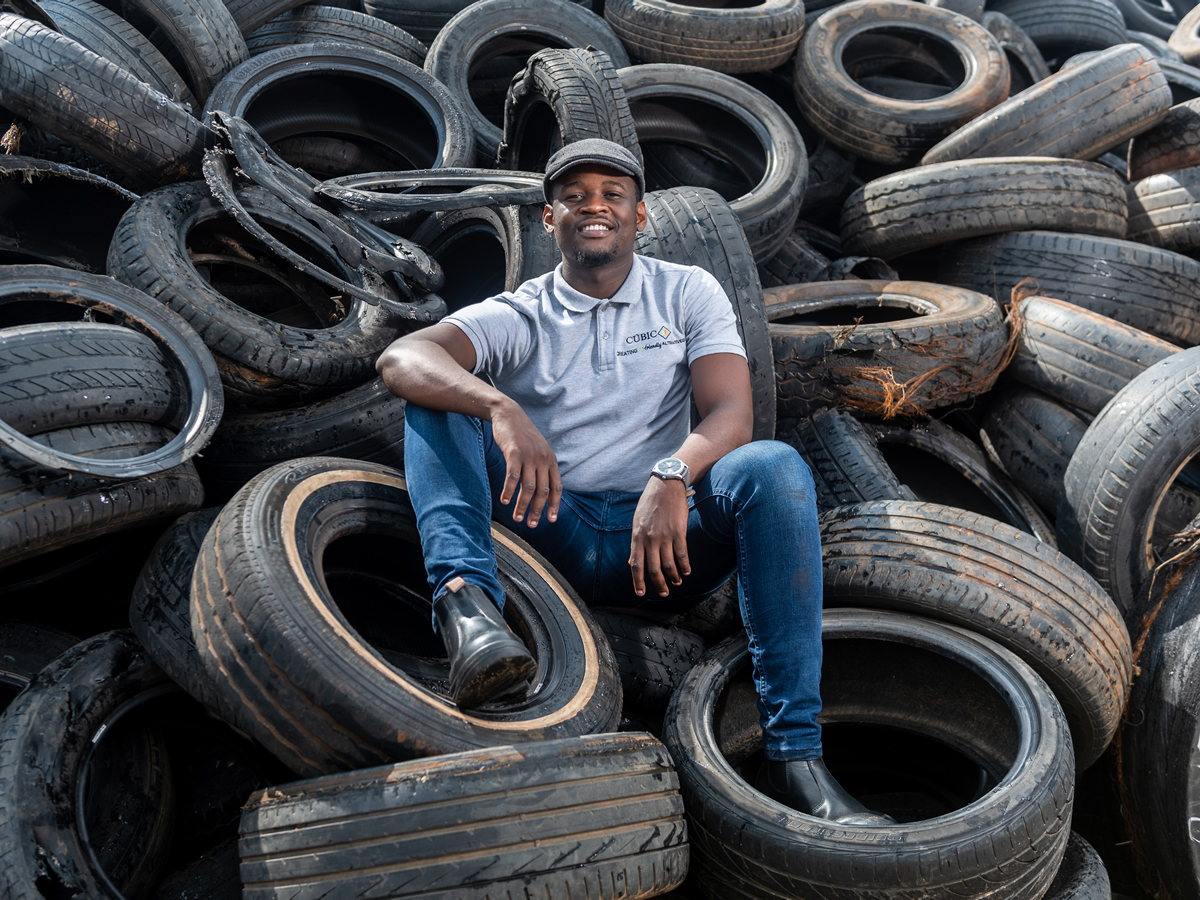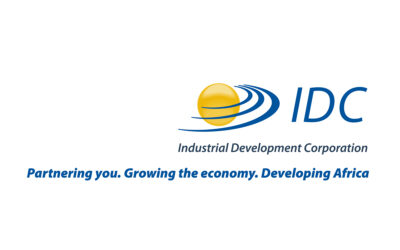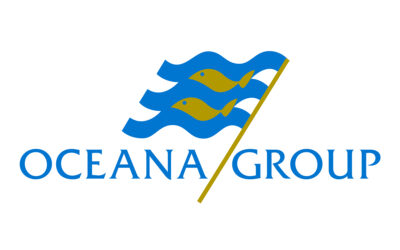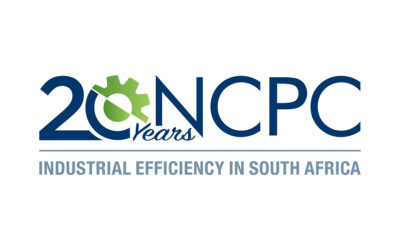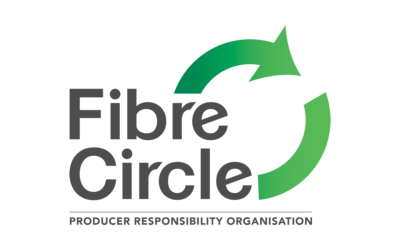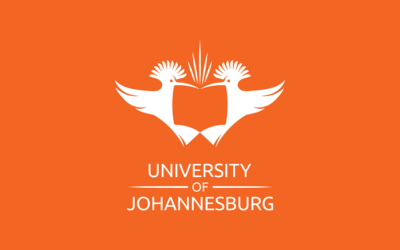“Cubic 38 was formed in a small garage by two students from the Tshwane University of Technology, Mzokhona Maxase and Tshepo Sithole, with the mission to create quality and affordable products for daily use from non-conventional sources such as waste tyres or processed rubber.
Eleven million waste tyres have accumulated in South African landfills over the years, while other tyres are resold or illegally dumped in open spaces. When burnt for heat or used as a fuel source, waste tyres release harmful greenhouse gases and toxic fumes into the environment.
When he moved to Gauteng from Hluhluwe, a rural area in KwaZulu-Natal, where there is minimal waste and communities live hand-in-hand with the environment, Mzokhona was surprised at the amount of waste he saw.
“Living in Gauteng was a huge surprise to me. Valuable materials which could be upcycled into income-generating raw materials were treated and labelled as waste materials. This led us to investigate the waste tyre ecosystem, which had huge challenges and very few proven upcycling avenues in South Africa.”
Mzokhona then set about applying the lessons learned from this contrast in approaches to waste, and worked on making materials live up to their best potential use.
As the company’s research revealed, tyres can be processed into three main raw materials (bio-oil, high-tensile steel and carbon black) using an eco-friendly process of pyrolysis. Pyrolysis is the thermochemical decomposition of organic material at temperatures between 400°C and 900°C – meaning that it irreversibly changes the material’s chemical phase, and its composition. Significantly, the process takes place without the presence of oxygen, and does not release toxic fumes into the environment. From this process comes the three raw materials mentioned, and Cubic 38 makes particularly good use of the waste tyres’ carbon black – a form of carbon that’s particularly fine, black and versatile, and which can become anything from pigment to rubber reinforcement. Cubic 38 uses the raw material as the main ingredient in their shoe polish and tyre shine production process, which is eco-friendly and does not cause further harm to the environment.
Currently, Cubic 38 has completed formal lab tests with the assistance of the Nelson Mandela University Department of Chemical Engineering, which is a big step towards reducing waste in the environment and directly benefits communities as they will live in a clean environment, free of harmful waste.
Cognisant of the fact that South Africa faces major challenges of youth unemployment and an insufficient waste handling system — especially in poorer communities, where the majority of the country’s people live – Cubic 38’s founders have made it their mission to address both problems at once. With the aim of reducing the environmental and societal impact, Cubic 38 plans to develop more waste tyre-derived products in the future. As their business grows to create these products, the organisation will scale up to involve more unemployed community members in the collection and processing of waste tyres to ensure the creation of jobs and a cleaner environment for all.”
“Living in Gauteng was a huge surprise to me. Valuable materials which could be upcycled into income-generating raw materials were treated and labelled as waste materials. This led us to investigate the waste tyre ecosystem, which had huge challenges and very few proven upcycling avenues in South Africa.”
